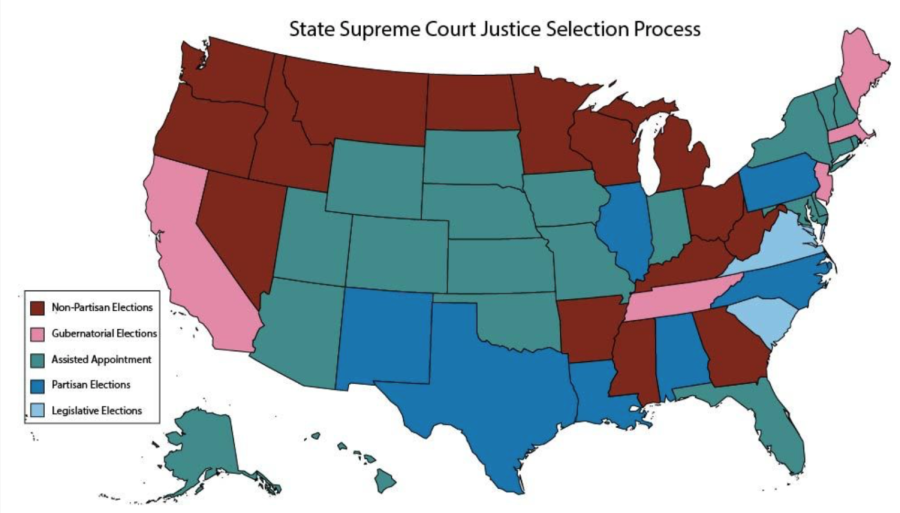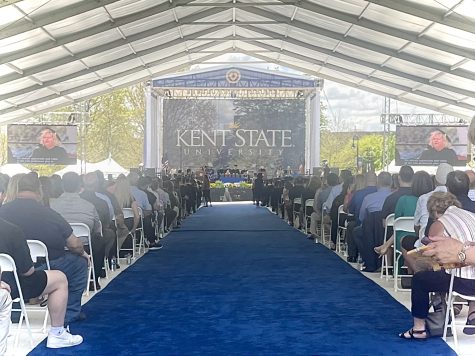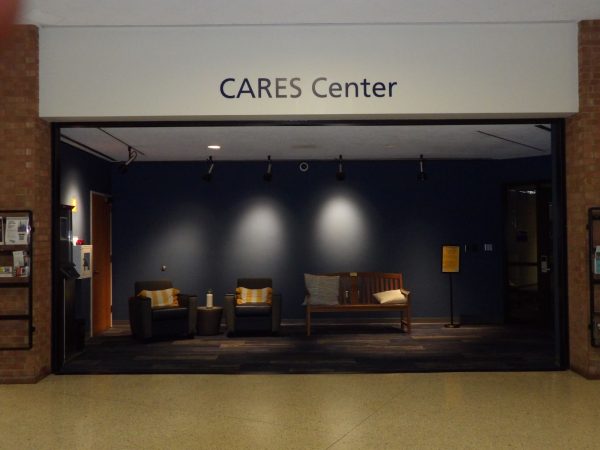Ohio Supreme Court candidates and the upcoming November election
October 28, 2020
Election Day is less than a week away, the final day to register to vote has passed and absentee ballots are on their way out to registered voters. When it comes to the Ohio Supreme Court justices, they are all elected into their positions.
Every state is different when it comes to electing or nominating judges and justices. The judicial selection ranges from a partisan election, a nonpartisan election, legislative election, gubernatorial appointment and assisted appointment.
In Ohio, justices are a part of the partisan primaries — choosing a side that they identify the most with during the time. When it comes to the November election, the justices then run as a nonpartisan election.
For the November election, there are four different candidates for the Ohio Supreme Court justices.
Ohio Supreme Court Justice Sharon Kennedy is opposed by Common Pleas Judge John O’Donnell; O’Donnell did not respond to multiple requests for interviews. Ohio Supreme Court Justice Judith French is opposed by Judge and Former Secretary of State Jennifer Brunner.
Running for Re-election: Justice Sharon Kennedy
Filling in an unexpired term spot, Justice Kennedy became an Ohio Supreme Court justice on Dec. 7, 2012. Due to the fact that she was running for an unexpired spot, the moment the race was certified, she was sworn in.
Before this position, Kennedy served on the Court of Common Pleas for 13 years in Butler County, along with having her own private practice before that for eight years. Before going into law, Kennedy was a police officer in the city of Hamilton in Butler County.
While being cross-examined during a trial, Kennedy would watch and see how the lawyer was asking the questions. She believed that she would be able to ask more compelling questions and handle it better.
“I got off the witness stand,” Kennedy said. “I went home and I called the University of Cincinnati.”
Kennedy works with the Veterans’ Treatment Court, helping veterans as a result of their service and making sure they are in the system.
“If there is a need a veteran has, the VA can fill it,” Kennedy said. “But the VA can’t fill it if we are not identifying you in the justice system.”
As an Ohio Supreme Court Justice, Kennedy works toward applying the law as it is written, along with applying her degree in social work to her decisions. With these points, she believes that is why people should vote for her.
“They should want someone who is also a compassionate person, who looks at a case file and sees a person and asks themselves, ‘what can I do to help make life better?’” Kennedy said.
Running for Re-election: Justice Judith French
Appointed by Governor John Kasich, Justice French became an Ohio Supreme Court justice in 2013 after Justice Evelyn Stratton retired early. Before this position, French was an appellate judge for eight years. French then ran for election and won in 2014, continuing on her position as a justice for the full term of six years.
“You want somebody who’s experienced, you want somebody who’s thoughtful, who has a good temperament on the bench who treats people fairly,” French said.
As a justice, French believes in the importance of being an advocate for what she believes in and to use her voice.
French has been focusing on getting the same access for everyone in the judicial system. If someone does not speak English, it is important to get them an interpreter. Does someone not have enough money for a lawyer? The hope is to make sure they can still get legal advice.
“Where I’ve put my time off the bench is trying to help change rules and procedures and to try to direct more attention and more resources toward helping those particularly those individuals who are underserved,” French said.
“You really want to find out how does that person view their role on the bench; what is it that they think they need to accomplish by being a judge? So, we talk about that in terms of judicial philosophy, and that’s all it is, is thinking about, ‘how do I see myself on the bench?’” French said.
French considers herself to be a judicial conservative. Different from a social conservative, she believes in not bringing in any bias. “What I try to do is not bring any biases,” French said. “I try to follow the law as it’s written already, and to be stable and consistent and predictable on the bench.”
Running for Justice: Judge Jennifer Brunner
For the past six years, Judge Jennifer Brunner has been a judge of the Ohio Tenth District Court of Appeals. Previously Brunner was also a judge of the Court of Common Pleas from 2001 to 2005. In addition to being a part of the legislative branch, Brunner was the Ohio Secretary of State from 2007 to 2011. As Secretary of State, Brunner was the first and only woman to hold that position in Ohio.
During her term as Secretary of State, Brunner was awarded the JFK Profile in Courage Award in 2008, which is “considered the most prestigious award for elected public officials who it’s for doing what’s for the greater good, even when it’s unpopular,” Brunner said.
In 2019, the U.S. Supreme Court made the decision that federal courts will not have a role in partisan gerrymandering claims. With the census being this year, in 2021, districts for the state legislature and congress are being redrawn, which could lead to gerrymandering. All of these redrawn lines will now need to be approved by the Ohio Supreme Court.
“If we have fair judges, there’s a better chance that those districts will end up fair,” Brunner said.
“You want someone who understands the nuances and the great diversity that is among the people in the state of Ohio. It’s what makes us a swing state and it’s what makes us. Oftentimes, the reflection of what the rest of the country is experiencing, you can see it happening right here in Ohio first and so that experience is important,” Brunner said.
When it comes to voting for the Ohio Supreme Court, Brunner said it is important to look for experience, as anyone who is in a judicial position compared to the other two branches is given a higher level of discretion.
“You want to look at what you think the person’s judgment will be, their objectivity, their commitment to impartiality and fairness and their commitment to the rule of law,” Brunner said.
Sara Crawford is an opinion editor. Contact her at [email protected].
SUPPORT STUDENT MEDIA
Hi, I’m Lauren Sasala, a senior journalism student from Toledo. I’m also the editor in chief of The Kent Stater and KentWired this semester. My staff and I are committed to bringing you the most important news about Kent State and the Kent community. We are full-time students and hard-working journalists. While we get support from the student media fee and earned revenue such as advertising, both of those continue to decline. Your generous gift of any amount will help enhance our student experience as we grow into working professionals. Please go here to donate.

























